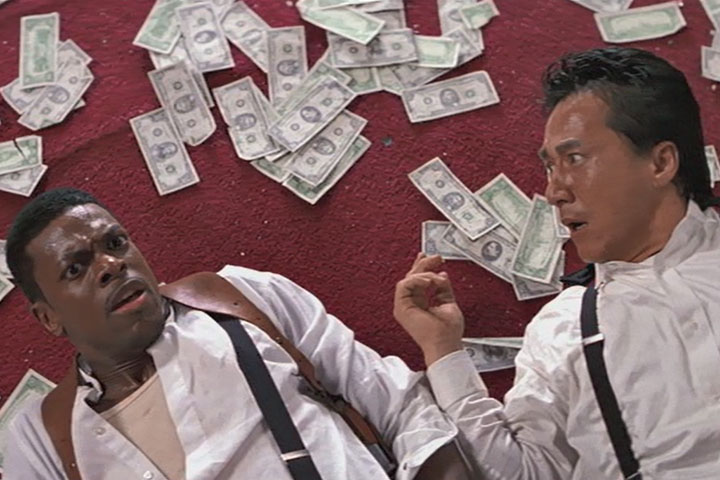Movies and TV shows have been printing and using fake money almost since the dawn of the moving image, and as a result, there are laws and regulations in place that prevent prop houses and production companies from making their cash too realistic for comfort.

In the United States, the Secret Service was originally established to track counterfeit money. Abraham Lincoln signed off on the formation of the federal agency on the day he was assassinated, at a time when an estimated third of all currency in the nation was said to be fake.
As technology continues to evolve, new legislation has been added to tighten the restrictions on who can make fake money, what they can use it for, and how it looks. Under the Counterfeit Detection Act of 1992, it’s a legal requirement that prop cash be either 75% smaller or 150% larger than the real thing, only printed on one side, and the equipment used to make it has to be dismantled afterwards.

Apparently, the outfit tasked with delivering a trillion dollars to the set of a blockbuster buddy cop sequel didn’t get the memo, leading to the authorities being called in. The climactic action sequence in Jackie Chan and Chris Tucker’s Rush Hour 2 unfolds in a casino, with a well-timed explosion sending scores of money soaring into the air to thwart the villainous plans of Alan King’s Steven Reign once and for all.

In what was a brief bonus for the assembled extras and crew members, despite reportedly being printed with ‘In Dog We Trust’ instead of ‘In God We Trust’, the counterfeit currency created by Independent Studio Services looked so convincing that huge amounts of it were pocketed and spent on the Las Vegas strip. Needless to say, the government did not take too kindly to this development.

The Secret Service was swiftly deployed to Rush Hour 2’s shooting location, and an investigation was launched, which ultimately saw $100million of movie money seized by the authorities. Independent Studio Services was also slapped with a cease-and-desist order, accused of counterfeiting. The company was forced to destroy its digital files, and the rest of its pretend cash was set to be used by other productions.

On the plus side, the folks responsible for crafting the fake cash had quite clearly done an excellent job, which under most circumstances would make them the go-to guys for any film or television shoot seeking the closest approximation of genuine legal tender they could find. Obviously, the downside is that being investigated and reprimanded by the government isn’t a good look for anyone, with those sneaky Rush Hour 2 extras even getting to spend some of their ill-gotten gains before the crackdown.